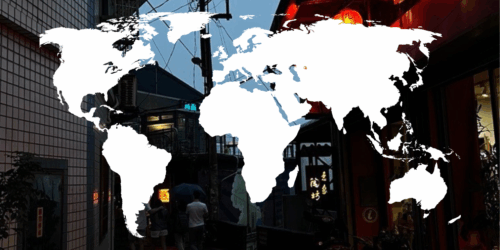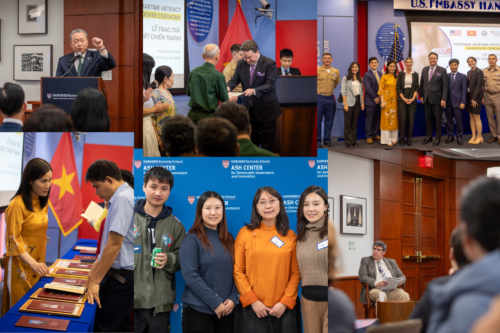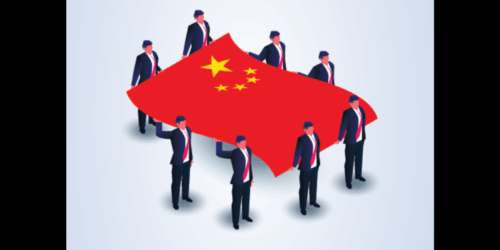
Essay
From Balancing to Coalition-Building: The US, Taiwan, and Asia’s Grand Reshuffling—Event in Review
A summary of the event, co-hosted by the Rajawali Foundation Institute of Asia and the Belfer Center for Science and International Affairs.
Feature
This past semester, the Rajawali Foundation Institute for Asia engaged in conversations and research on topics ranging from Indonesia’s election to US-Taiwan relations with the goal of continuing to develop policy solutions to the region’s most pressing concerns.
Bangladesh Public Administration Project, China Philanthropy Project, China Public Policy Program, China’s Leaders in Development Program, Global Vietnam Wars Studies Initiative, Indonesia Public Policy Program, Myanmar Program, Taiwan Public Policy Program, Unseen Legacies of the Vietnam War Project, Vietnam Public Policy Program
Whether it’s commenting on the outcome of Indonesia’s momentous election or helping strengthen the US-Vietnam relationship through critical archival work, the Rajawali Foundation Institute for Asia is at the forefront of some of the region’s greatest challenges. Every semester, we continue to deepen our impact through our research, commentary, and events.
As the semester wraps, we encourage you to explore the compilation of our most popular events and top insights below. Looking forward to the start of the next school year, we hope you’ll join us at one of our events, which can always be found online here.
Democracy and development were on the ballot during Indonesia’s national elections earlier in February according to experts at a Rajawali Foundation Institute for Asia event on what Prabowo Subianto’s victory now portends for the future of the country.
At a May event at the US Embassy in Hanoi, researchers from the Unseen Legacies team returned personal ephemera to families and veterans alongside research that helped answer decades-old questions about the fates of missing Vietnamese soldiers.
January 29
The Rajawali Foundation Institute for Asia and the Fairbank Center for Chinese Studies co-hosted a webinar on Taiwan’s recent presidential election, which saw the Democratic Progressive Party’s Lai Ching-te capture the presidency.
February 23
The Rajawali Foundation Institute for Asia hosted a Global Elections Webinar Series event to reflect on the implications of President Prabowo’s landslide victory for the state of democracy and prospects for national development in Indonesia.
February 27
This hybrid conversation tackled the pressing issue of artificial intelligence’s influence on democracy. The panel explored such dynamics in Taiwan’s recent election and the upcoming US election and offered ways of thinking about — and countering — such threats.
February 29
This webinar delineated the consequences of China’s slowing economic growth and what kind of response is warranted from educators, policymakers, and business leaders.
April 3
During this event, Rajawali Foundation Institute for Asia Director Tony Saich spoke with Alexander Tah-ray Yui, Taiwan’s Representative to the United States, on the future of US-Taiwan relations.
April 16
Speakers Viet Thanh Nguyen and Shehab Chowdhury highlight the dynamic role of AAPI communities in advocacy, grassroots and liberation movements, and social activism.
April 29
The Rajawali Foundation Institute for Asia hosted a book talk with Axel Berkofsky, author of China-GDR Relations from 1949 to 1989: The (Bad) Company You Keep.
The Real Roots of Xi Jinping Thought, Foreign Affairs, Rana Mitter
The Great Creep Backward: Policy responses to China’s slowing economy, PolicyCast, Rana Mitter
Taiwan sees warning signs in weakening congressional support for Ukraine, Harvard Gazette, Tony Saich
Biden Aims to Project United Front Against China at White House Summit, New York Times, Rana Mitter
The U.S. vs China, The Face-Off, Rana Mitter
What will a potential TikTok ban mean for Chinese tech in the U.S.?, CNN, Wenchi Yu
Xi Jinping warns Putin to ‘hold back’ on using nuclear weapons, Times Radio, Rana Mitter
Sharif’s Beijing trip: Can China-Pakistan Economic Corridor be revived?, Aljazeera, Stella (Hong) Zhang
Essay
A summary of the event, co-hosted by the Rajawali Foundation Institute of Asia and the Belfer Center for Science and International Affairs.
Q+A
M. Chatib Basri answers questions about his paper, exploring Indonesia’s strategic alignment and leverage, maritime position, and the implications of domestic reform on Indonesia’s regional impact.
Feature
The second day of Fifty Years On: New Perspectives on the Vietnam Wars continued the conversations from Day One, exploring the wars’ lasting global and human impact. Building on the first day’s scholarship and personal reflections, Day Two featured three panels and a final roundtable. A first article covers Day One.
Essay
A summary of the event, co-hosted by the Rajawali Foundation Institute of Asia and the Belfer Center for Science and International Affairs.
Q+A
M. Chatib Basri answers questions about his paper, exploring Indonesia’s strategic alignment and leverage, maritime position, and the implications of domestic reform on Indonesia’s regional impact.
Q+A
Ning Leng, Assistant Professor at the McCourt School of Public Policy at Georgetown University, and former postdoc at the Rajawali Foundation Institute for Asia, answers questions on her newly released book Politicizing Business: How Firms Are Made to Serve the Party-State in China, exploring politics, economy and authoritarian institutions in China.



